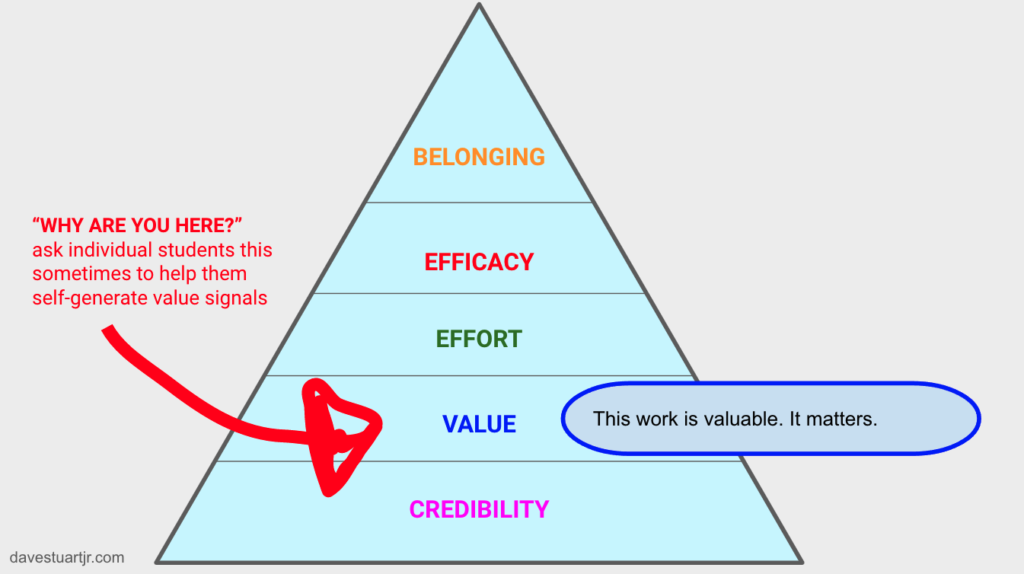Recently while reading Professor Ayelet Fishbach's Get It Done: Surprising Lessons from the Science of Motivation, I came across this line that made me think about my students a bit but the students of electives teachers a ton.
In 2006, psychologist Kentaro Fujita and his colleagues had people answer a series of why or how questions. “For example,” writes Fishbach, “they answered ‘Why do you maintain good physical health?' or ‘How do you maintain good physical health?'”
“After answering several such questions, the research participants started to think about their goals either more abstractly [the WHY group] or more concretely [the HOW group] depending on the series of questions they'd answered. Those who answered a series of ‘why' questions were more motivated to channel resources to their goals. They worked harder. So, for instance, they exercised more physical effort when holding a handgrip.”
Basically, Fishbach argues that concrete goals tend to feel a lot like chores, whereas more abstract goals tend to feel more purpose-driven and meaningful.
Telling someone that “I maintain good physical health so that I can be a more energetic father” does something to your heart that telling someone “I run three times per week” just doesn't do.
What's going on here in terms of the five key beliefs?

My take is that the WHY question format activates the Value belief in the hearts of participates. This kind of makes sense when you compare the Fujita experiment above with one I wrote about in These 6 Things — Chris Hulleman's Build Connections intervention (read about in Ch 2 of the book).
Value is one of those things that teachers are wise to cultivate via two basic means:
- Teacher-generated value signaling
- Student-generated value signaling
(I wrote about this last fall.)
The student-generated kind is, of course, the more resilient — this is why Hulleman's studies end up yielding results years after the intervention. When my students leave my classroom at the end of the year, I don't travel along on their shoulders, daily explaining the beauty of an education.
But they travel along with themselves, don't they?
So maybe today, find a way to ask a student that you teach, “Hey — why are you here?”
Start with students who clearly seem motivated — they'll probably tell you some encouraging things that'll make you smile.
But then start trying it with students who seem less motivated.
Your first goal? To listen and understand the hearts of the people you teach.
Your second goal? Who knows — maybe they'll start holding the handgrip a little harder tomorrow.
Take care, colleague,
DSJR
Bethwel says
A good piece of writing indeed,,,,*value* and passion drives you to do smart in the area of concern,,,,,,,,, you’ve always made me to reinstate my abilities to oftenly focusing on my passion